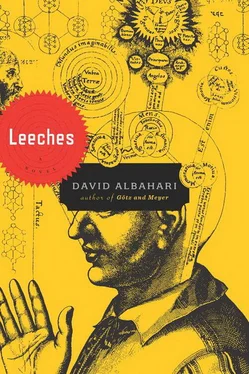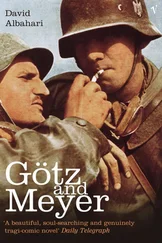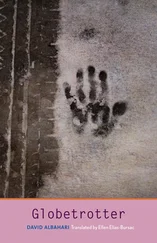The Well, while on the next page was written, A dream uninterpreted is like a letter unread. I didn't know whether the whole manuscript was an account of a dream — the writer's or, perhaps, why not, mine — but I did discover when I examined it more closely that dreams were central to it. If someone were to ask me to describe the manuscript, I am not sure I could. It started off as an historical narrative, then turned into a history of dreams, followed by a collection of Kabbalistic exercises, furnished with an assortment of lists of people and events and material expenditures, books and artwork and porcelain bowls, and the lists were followed by verses, anecdotes, and dramatic dialogues, supplemented by a brief epilogue and, at the end, a detailed index, which, I later established, had little to do with the manuscript itself. This suggested that there might be other parts to the manuscript or that it referred to parts, as Marko said, that had not yet been written. Maybe this is how all books should be written, Marko went on, because the index is their essence, and if one knows the essence of what one wants to write, it is easy to fill in the spaces between the entries and establish the connections. The manuscript reminded me of the infinite book of sand that Borges had so desired: each time I opened it, the manuscript changed, with a new beginning or a new end, and none of these beginnings or ends broke the continuity, rather, they became part of a whole. This is it, I remember saying to Marko as we leafed through the manuscript together, this is what I've always wanted: a text to which I can dedicate my life. Everything changed then, and if this were a book, only now would it begin to engage the reader, but this is not a book, it is a confession, which I am speaking into the wind at the edge of a forest, so that the words, threadbare as always, are vanishing, mingling with the nitrogen and oxygen and who knows what else, and even I, as I'm speaking, can't hear them. I should mention, however, that despite formal differences between some portions of the manuscript, two subjects dominated throughout: one was the history of the Zemun Jewish community, which originated in the first half of the eighteenth century when, after Belgrade again fell into Ottoman hands in 1739, Jews stayed on in Zemun in slightly larger numbers, while the other was a collection of several Kabbalistic threads that kept tangling and untangling, though for me, quite frankly, they always represented a perfect knot. There were other themes in one or, at the most, two of the chapters, though it may also be that I hadn't recognized them elsewhere in the manuscript or that I had simply not been able to grasp them. This didn't bother me, because those other themes played no role in the change that I mentioned, which could clearly be tied to the central themes of the manuscript. When I realized I would need to learn more about the Jewish community, I turned to the Jews I knew, the writer Isak Levi and the historian Jakov Švarc, who to begin with took me to the Jewish Historical Museum in Belgrade, where I was given copies of various writings about the Zemun Jews. While we drank coffee and nibbled matzos, Isak Levi went next door to take a call. When he came back he told me the call was from Jaša Alkalaj, a painter who dabbled in the Kabbalah, who, when he heard of me, had suggested that Levi bring me to his studio. At the time I assumed the invitation was impromptu; now I am convinced it was not: Jaša knew I was at the museum, and I tumbled easily into the trap. We spent that entire night at his studio, cluttered with paintings, candlesticks, and colorful things he'd picked up on the streets. Isak Levi was the writer, but Jaša Alkalaj could tell a story, and once he'd started, he showed no inclination to stop. His answer to my first question, which had to do with the presence of Kabbalists in Belgrade, took nearly two hours. Then he went looking for another bottle of brandy and brought out a plate of cheese and olives, but he never stopped talking, though it sounded more like mumbling, like a person talking to himself. Just don't ask him about the Hasidim, Isak Levi and Jakov Švarc warned me, because then he won't stop talking till dawn, but by accident, if anything ever happens by accident, I brought up Martin Buber, and that's how we ended up staying at the studio till dawn. Isak Levi was snoring on a low sofa, Jakov Švarc was barely able to keep his bloodshot eyes open, and my head was about to burst when Jaša Alkalaj apologized; he could no longer talk with us, he had to run to the Art Academy where his students were waiting for him, but whenever I wanted to, he said, I could get in touch or, better still, drop by the studio, no need to call ahead, a key was under the mat, just lift the right or left lower corner, though sometimes it slid over to the side, but not often, he said, and I could unlock the door, go in, and wait. The only thing I mustn't do while I was waiting was paint. At that point we were standing by the door to the studio, Jaša Alkalaj lifted the corner of the doormat, we leaned over to see the key. Isak Levi started snoring again, leaning against the door frame, Jaša Alkalaj dropped the doormat and a little puff of dust rose, and we all hurried into the elevator, as if we were fleeing a sandstorm. Two days later, once I'd completed my piece for
Minut, I went back to the studio, this time resolved to put several clearly formulated questions to Jaša Alkalaj, about the people and events mentioned in the manuscript, to prevent him from straying into his meandering associations. I rang the doorbell, but there was no response. I decided Jaša wasn't there and, following his instructions, I looked for the key under the mat. Then I changed my mind, pulled my hand back, and set the mat down. I couldn't go in, I told Marko later, because I am incapable of entering anyone's apartment in the owner's absence, so I walked to the elevator at the other end of the corridor. While the elevator was on its way down, it occurred to me that I should have left a note, but by then it was too late; and besides, it is better, in terms of fending off bad luck, not to retrace one's steps, or, in this case, to use the same elevator, and I was not about to walk up to the fourteenth floor. I thought about waiting for a bit at the entrance to the building, because who knows, I said to Marko, maybe he'd just stepped out to the supermarket or a liquor store, or to the corner kiosk, and would be back in no time. A boy in a leather jacket was perched on the entrance steps; he was staring, head bent, at a magazine spread open on his knees. I probably wouldn't have noticed him, or maybe I would have just glanced at him while pacing back and forth in front of the building, but he looked up, and his eyes opened wide in an expression of disbelief. I took a few more steps, and only then did I stop and turn. The boy, his back to me, was punching numbers into his cell phone. When he put the phone to his ear, he turned around. We looked at each other, and though I don't know why, as I told Marko, I started for home right away. I didn't look back, I didn't want to find out whether the boy was following me or still standing at the entrance, listening to what they were telling him to do, so I lowered my head, hunched my shoulders, and walked faster, and the only thing I could think about was that I couldn't think. My head was a vast, deep void in which the blood throbbed painfully, and where, despite the void, there was no room for thought. It was only after I'd crossed several streets that I had a clear thought: I'd escaped. Then I turned, looked to the left, looked to the right, and decided that no one was following me. No one is following me, I thought, but I wasn't sure. I'm not sure, I thought. I entered a shop and stood by the display window. Several people walked past in the street, but none looked like the boy. I ought to give Jaša a call, I thought, and then I remembered he wasn't home. He is not home, I thought, which was irrelevant since I didn't have his phone number. I went back into the street. The boy was not after me, I could breathe a sigh of relief. That is when I noticed, as I told Marko, that I was no longer thinking in sentences, single words were all that was going through my head:
Читать дальше







![David Jagusson - Fesselspiele mit Meister David [Hardcore BDSM]](/books/486693/david-jagusson-fesselspiele-mit-meister-david-har-thumb.webp)




